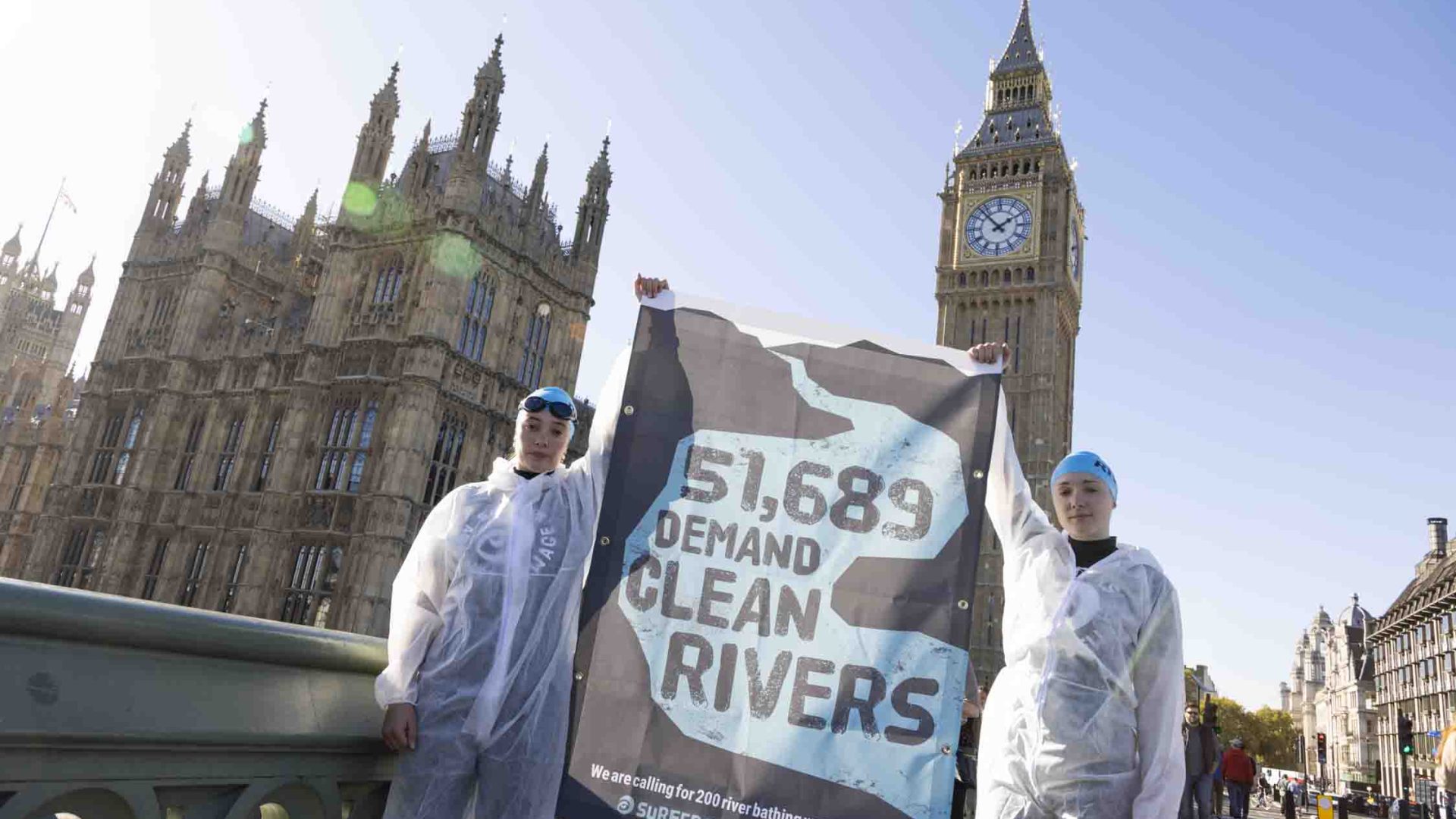
A Bumper Month for Politics
Policy and Advocacy Manager, Henry, fills us in on some policy news for the month.
In the weird and unpredictable world of parliament, November has turned out to be the start of a new parliamentary year. It’s been a busy one in Westminster. When King Charles gave his first King’s Speech on 7th November, he was setting out all the new laws and policies that the government are going to be prioritising over the next parliamentary year. Just a week later, the Chancellor set the rumour mill turning with the prospect of a Spring General Election. Prompted by Surfers Against Sewage Water Quality Report, as well as a pretty damming Panorama programme, we have seen opposition parties attempt to seize the political agenda by using debates and votes in parliament to outline their plans to tackle sewage.
The Kings Speech
The government used the first King’s Speech to announce what new laws they plan to pass in the coming year.
We were outraged, but hardly shocked, that the speech included plans for annual licensing rounds for new oil and gas fields in the UK. It further evidences the government’s plans to green light yet more and more catastrophic drilling. We are in a climate emergency, and yet this government push ahead in the totally wrong direction. We must put a stop to new oil and gas in the UK.
But for now, we were somewhat relieved that the speech didn’t include laws to follow up on governments plans to rip up water quality standards and environmental protections for our waterways. Whilst there is no guarantee that government won’t try and make these changes again further down the line, at least we can claim a win that the government have put a hold on the plans.
Early Election
A week after the King’s Speech, the chancellor (who is in charge of the government’s finances) used the autumn budget to cut taxes. This triggered thoughts that the government might be calling an early election. WHY? Well the government and the Prime Minister have the power to decide when they call the next early election. And unsurprisingly, they will call it when they think they will have the best chance of winning. So, by announcing tax cuts, which are seen as widely popular policy for conservative voters, it looks like the conservatives could be gearing up to get people onside and primed to vote for them sooner rather than later.
What does this mean for voters?
On the most basic level it means that you should expect to see your MPs and candidates out and about in your communities looking to convince people to vote for them. This gives us voters some power to ask questions of their candidates about what they and their party are going to do to End Sewage Pollution and protect and restore the ocean. At HQ we’re working on resources to help you to do this. But in the meantime, if someone with a rosette comes knocking on your door you can ask them:
What will you and your party do to End Sewage and Plastic Pollution?
What will you do to protect and restore the ocean and rivers?
Policies galore
Since launching the Water Quality Report we have seen renewed attention from all the parties on sewage pollution, with two major parliamentary debates in the same week on sewage. This has given us the great opportunity to meet with parties’ policy teams to comment on what we think of their policies. Throughout these conversations we have pushed the five key policy areas that we have set out in the End Sewage Pollution Manifesto. These policies are simple Enforce the Law, Stop Pollution for Profit, Prioritise High Risk Pollution, Empower a Nature led Approach and Reveal the Truth.
So, whilst we have some welcome parliamentary debates about banning water company executives bonuses and compensation for people who get sick from sewage. We have yet to see parties commit to the full range of polices in our manifesto that will tackle the core issues leading to sewage pollution. The core issues being the blatant failure to enforce the law by regulators, and a chronic lack of investment from water companies.
With elections getting closer and closer, we’ll keep up the pressure behind the scenes to push all parties to put forward ambitious plans to end pollution in their manifestos.
